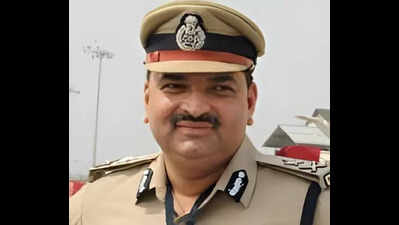- News
- City News
- patna News
- ‘Report cybercrime immediately to minimise loss’
Trending
‘Report cybercrime immediately to minimise loss’
With cyber scams becoming alarmingly sophisticated, swift action remains the best defence. In a conversation with TOI's Kshitiz, additional director general of Economic Offences Unit (EOU), Nayyar Hasnain Khan, sheds light on the digital arrest scam, recovery hurdles and how Bihar is gearing up against the cyber onslaught. Excerpts:
What is the latest trend in cybercrime in Bihar?
The most alarming trend is ‘digital arrest'. Here, fraudsters impersonate govt or law enforcement officials, falsely accusing victims of crimes and coercing them into paying money or revealing sensitive information. They claim a ‘digital arrest warrant' exists. Thankfully, such cases have declined since PM Narendra Modi raised the issue during his ‘Mann Ki Baat' programme.
What measures are being taken to tackle incidents of digital arrest?
Where should victims report cyberfraud?
Both cyber and local police stations can register complaints. FIRs can also be lodged over the phone. Elderly citizens and women need not visit the station. They can inform police over a call and an officer will visit their home to record the statement.
Can the stolen money be recovered?
Recovery is possible if the case is reported quickly, before the money is transferred. Once funds are routed through multiple accounts – often across states or even overseas – it becomes very difficult. Frozen amounts can only be returned after a final charge sheet is filed in court.
How does the cyber police operate in Bihar?
The EOU is Bihar Police's nodal cybercrime unit. We focus on five areas: Case detection and investigation; 24/7 complaint registration via the National Cyber Crime reporting portal; Training police officers, prosecutors and magistrates; public awareness drives targeting digitally uninitiated groups, securing govt departments with appointed cybersecurity officers and district-level social media monitoring.
How can the public protect themselves?
Don't share personal data or passwords. Lock your mobile devices. Keep them away from children. Change your passwords frequently. And never respond to suspicious calls or links on social media.
End of Article
FOLLOW US ON SOCIAL MEDIA










